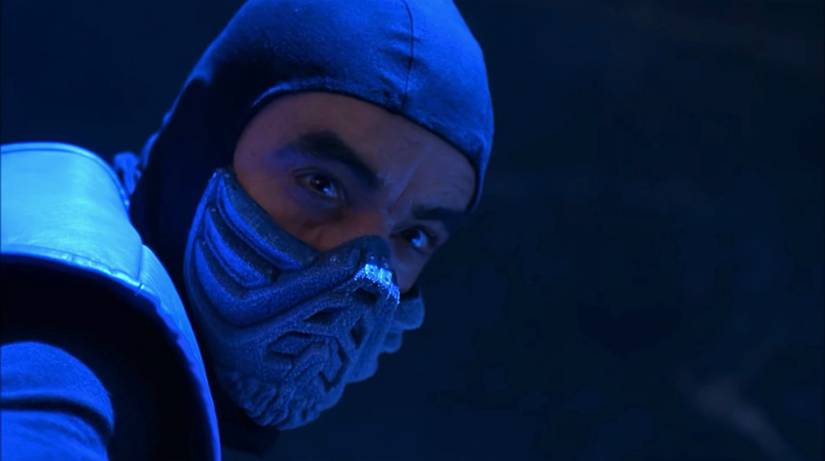On a secret, far-flung island, a martial arts tournament is about to take place. But the stakes are far higher than your typical smackdown event. The fate of the entire universe is up for grabs.
Released 30 years ago on Aug. 18, 1995, Mortal Kombat remains celebrated as one of the greatest video game adaptations ever — despite barely following the original game’s plot. Its lasting appeal comes from spot-on casting, faithful costume design, sharp fight choreography, and an unforgettable soundtrack whose theme is now inseparable from the franchise. Fans don’t shout “Mortal Kombat!” because of the games, they do it because of this movie. The key unifier tying it all together? Keeping the story framed within the tournament format, just like the original game.
Paul W.S. Anderson’s Mortal Kombat (1995) was directly inspired by Robert Clouse’s Enter The Dragon (1973). Each tournament takes place on an isolated, privately owned island, while Cary-Hiroyuki Tagawa (Shang Tsung) and Robin Shou (Liu Kang) fulfilling the role of Shih Kien and Bruce Lee, respectively. Even some action set pieces are similar, like when the trio of Sonya, Johnny, and Liu fight a horde of endless henchmen — just like Lee did while infiltrating Han’s hidden lair. Goro, the series four armed sub-boss mirrors Enter The Dragon’s invincible henchman Bolo. This list goes on.
Although the upcoming Mortal Kombat II (2025) isn’t copying Enter The Dragon, it is leaning heavily on the tournament angle for its, as well as its marketing. In a recent interview promoting the new film, franchise creator Ed Boon told Entertainment Weekly: “They keep score throughout the movie. There’s a visual representation of who is winning…. It’s not just a tournament for the sake of a tournament. There are huge consequences, so you really are keeping score. And there are a lot of twists in it that keep you on your toes.”
A kountdown event led up to the trailer release, featuring an interactive reveal of all the fighters participating in the tournament. The presentation resembled the classic fighter selection screen from the games, allowing viewers in the chat to vote by choosing between options 1 or 2 to determine which character would be unveiled first. For fans of the original games and the 1995 movie, this all seems very promising, especially when the current games keep straying further away from their original concept.
The Mortal Kombat games largely abandoned the tournament format as it entered the 3D era with Mortal Kombat 4 and hasn’t returned since, for better or worse. The rules were already broken in the third game, shifting the focus toward Shao Kahn’s bid for power and Raiden’s Earthrealm warriors acting as the de facto authorities. It would also be pretty boring for every game in the franchise to have the same tournament-styled storyline. But it’s also foolish for any franchise to forget its roots, and recent MK games have strayed so far from their origins that there may be some cause for concern.
In the latest video game entry, the soft reboot Mortal Kombat 1, a tournament appears but feels more like an afterthought than a central framing device. The story quickly shifts back to the familiar plot of evil forces vying for a throne before diving headlong into the multiverse storyline from the previous game — all at a time when multiverse fatigue is high. It’s a tournament for the sake of having one, something Boon, who also worked on this Mortal Kombat 1, says the upcoming film will avoid. Though the movie’s production began before the game’s release, perhaps he’s realized that tournaments only work when real stakes are involved, especially since that format has introduced some of the series’ most iconic rivalries: Liu Kang vs. Shang Tsung (and eventually Shao Kahn), Scorpion vs. Sub-Zero, Kitana vs. Mileena, etc.
Those rivalries are the heart of Mortal Kombat, beyond the violence and dark humor. People might show up for the action and laughs, but they stay for the enduring grudges and deeply personal feuds. It’s the same reason tournament arcs are beloved in anime — they’re not just stages for great fights, but arenas for settling scores. At its core, before throne grabs or inventive fatalities, Mortal Kombat has always been about engaging in personal rivalries, and tournaments are fantastic ways to frame them.
1995’s Mortal Kombat understood this, and that’s what makes it a great movie, even 30 years later. It’s exciting to see the rest of the franchise finally remember what Paul W.S. Anderson implicitly understood all those years ago. And the promise of a cinematic return to form — with a much bigger budget — is incredibly promising. Now, if only we could convince Warner Bros. to put some techno music in Mortal Kombat II, we’d be all set.








